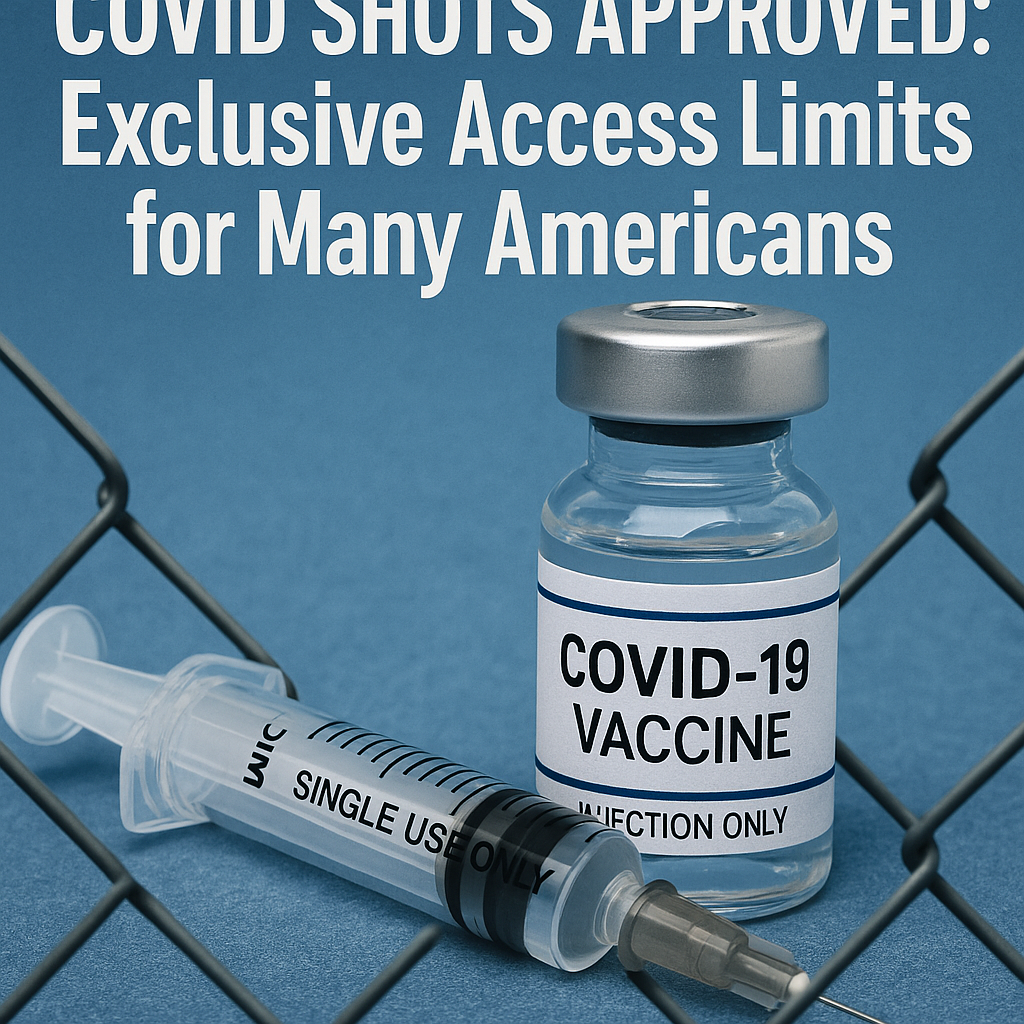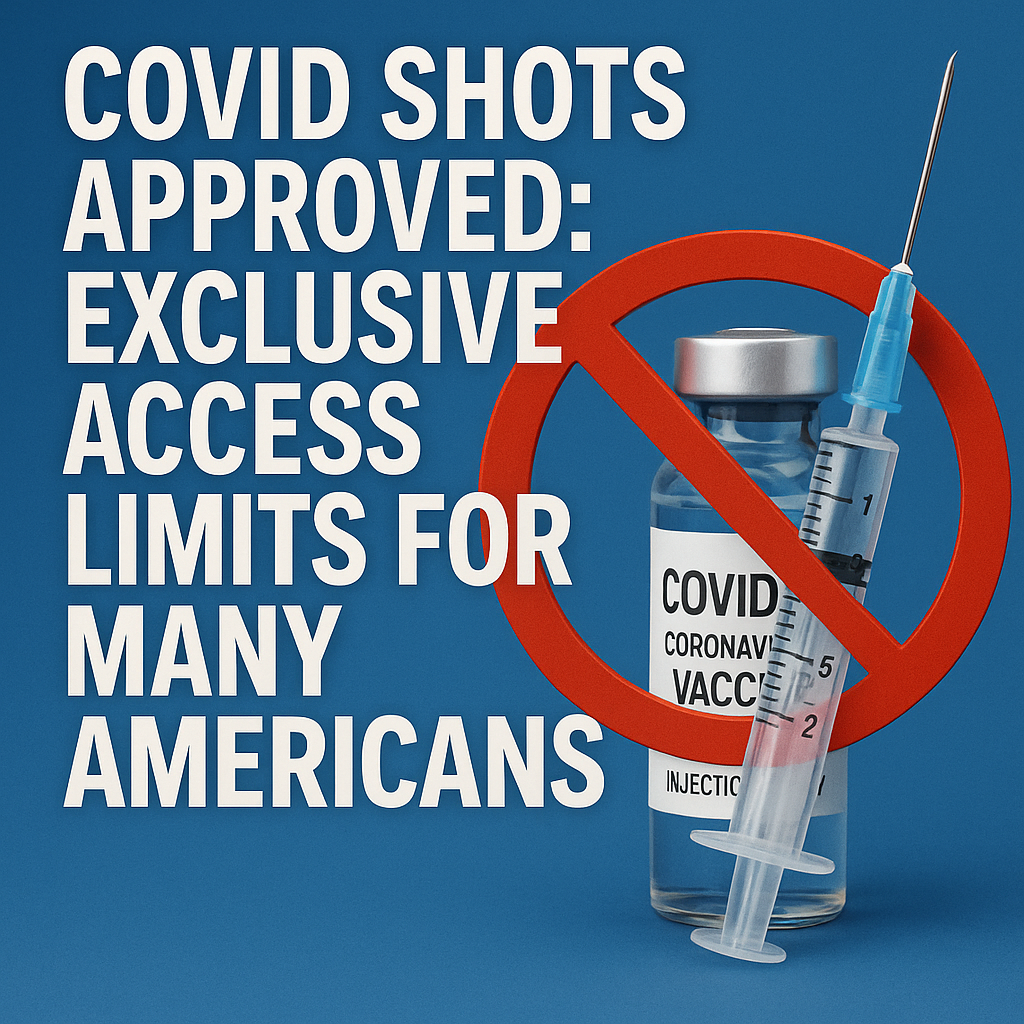COVID Shots Approved: Exclusive Access Limits for Many Americans
COVID Shots Approved: Exclusive Access Limits for Many Americans
COVID shots approved by health authorities have become a recurrent topic as the pandemic continues to evolve. Recently, significant changes in the distribution and accessibility of these vaccines have raised eyebrows among healthcare professionals and the public.
Understanding the Approval and Accessibility Limits

The FDA’s recent endorsement of new COVID shots signifies an important step in the ongoing battle against the virus. However, the approval comes with notable restrictions that are limiting access for certain segments of the population. According to a report from the Review-Journal, while the new vaccines have been deemed safe and effective, their distribution will be tightly controlled, targeting only specific demographics.
– Target Groups: The FDA plans to prioritize vulnerable populations, including the elderly and individuals with underlying health conditions. This approach aligns with some public health recommendations aimed at reducing severe outcomes associated with COVID-19.
– Unused Doses: A concern highlighted by 8 News Now is the potential wastage of vaccines due to these strict access limits. With certain groups prioritized, unused doses may lead to shortages or future vaccine hesitancy if not properly managed.
These constraints have sparked debate among public health experts and community leaders about equitable access. Many express concern that limiting access may exacerbate disparities in healthcare, particularly for underserved communities who may have less access to healthcare resources or communication about vaccine availability.
The Community Response to Exclusive Access Limits
Reactions to the FDA’s decision have varied significantly among different communities and stakeholders. Some healthcare professionals praise the cautious approach, advocating for focused vaccination efforts to maximize the impact of the new COVID shots. A doctor quoted in the Review-Journal emphasized, “Focusing on high-risk groups can potentially save lives by ensuring those who need it the most receive the vaccine first.”
Conversely, community advocates have voiced frustration, asserting that broad access is essential to achieve herd immunity and protect public health. Many urge agencies to expand eligibility criteria to prevent inequities. “At this point in the pandemic, limiting access doesn’t just affect individuals; it affects community transmission and recovery efforts,” a public health advocate expressed in an interview with 8 News Now.
Potential Consequences of Limited Access
The implications of the FDA’s strategy extend beyond immediate access. Here are key factors to consider:
– Public Sentiment: As access remains limited, public perception of vaccines could be impacted. Trust in health authorities can erode if communities feel overlooked. Reports suggest that a lack of transparency about why specific groups are prioritized could fuel skepticism.
– Preparedness for Future Waves: The pandemic landscape is continually shifting. Limiting vaccine access for broader populations may hinder efforts to quickly respond to potential future COVID-19 surges or emerging variants. Expanding access could provide a buffer against widespread transmission.
– Advocacy for Change: Community advocates and some health professionals are advocating for broader discussions around vaccine distribution policies. There’s a push for more inclusive strategies that factor in local conditions and community needs, rather than a blanket approach based solely on risk factors.
Conclusion: Navigating a Complex Landscape
Ultimately, while the new COVID shots approved by the FDA represent a crucial advancement in public health, the accompanying access limitations necessitate ongoing dialogue among all stakeholders. Balancing the needs of vulnerable populations and the broader community remains a complex but vital challenge.
As the health crisis continues to unfold, it will be essential to monitor the effects of these access limits. Continued engagement with communities, transparent communication from health authorities, and an inclusive approach to vaccinations could pave the way for a more equitable and effective response to COVID-19 and its evolving challenges.
In summary, while new COVID shots offer hope, the exclusive access limits for many Americans compel us to reflect on the values we hold as a society regarding health equity and public welfare.





